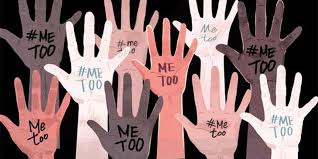In todayŌĆÖs media world, identity construction is no longer confined to traditional physical spaces; digital interactions and platforms significantly influence it. Scholars like Nick Couldry and Andreas Hepp highlight that digital media not only reflect reality but also actively shape it. In their work, ŌĆ£The Mediated Construction of RealityŌĆØ (2017), they argue that platforms such as Facebook and Instagram have become deeply integrated into our daily lives. This affects how we perceive and negotiate our identities. Online profiles serve as stages for identity performance, often blurring the lines between genuine self-expression and strategic self-promotion.

Paddy Scannell’s ŌĆ£Media and CommunicationŌĆØ (2007) offers a historical perspective on how media have always influenced public and private life. In today’s world, digital platforms have intensified this influence, creating a hyper-connected environment where our identities are continuously reshaped through immediate, global feedback. Social media has heightened the performative nature of identity, transforming self-representation into an ongoing, reflexive process that is shaped by public visibility and real-time validation.
Sabreen Haziq’s 2019 article, “Putting the Best Digital Self Forward in the Age of Social MediaŌĆØ, highlights self-branding pressures. Haziq argues that social media platforms encourage users to idealise versions of themselves, where digital validation through likes and followers becomes a measure of self-worth. This phenomenon raises questions about authenticity, a persistent challenge in the digital world. While these platforms offer significant opportunities for self-exploration, they also encourage people to present an idealized version of themselves, which does not reflect their true selves.

With anonymous communities and social media platforms, the balance between authenticity and self-presentation can be more complex. If we look at platforms such as Reddit that provide users with anonymity, enabling them to express hidden aspects of their identity. However, this anonymity can also lead to issues such as fragmentation and exposure. Similarly, tools like filters and virtual avatars facilitate playful self-experimentation but can distort self-image and create unrealistic standards.┬Ā

Digital activism can also play a role in shaping identities. Movements such as #MeToo and #BlackLivesMatter demonstrate how social media can be used effectively for advocacy, allowing individuals to create and express their activist identities. The downside of this is performative activism, where people may not think of the importance of genuine engagement in activism, but rather support offered merely for social recognition.


Navigating your digital identity requires careful attention and thoughtful practices. Curate your online presence in a way that feels both authentic and intentional. Share not only your highlights but also your struggles to connect with others more genuinely. Engage with your audience purposefully, considering whether your posts educate, entertain, or meaningful connections. You can protect your privacy by understanding the implications of your digital footprint.┬Ā
Understanding these dynamics allows us to interact with digital platforms more intentionally, turning our use of technology into a conscious act of self-creation rather than merely engaging in performance. As our world becomes increasingly mediated, recognizing how these influences shape our identities can help us maintain a balanced and authentic presence online.
Referanse:
- Couldry, N. & Hepp, A. (2017)┬ĀThe Mediated Construction of Reality: Society, Culture, Mediatization. Cambridge: Polity Press.
- Scannell, P. (2007)┬ĀMedia and Communication. Los Angeles: SAGE.
- Haziq, S. (2019) ŌĆśPutting the Best Digital Self Forward in the Age of Social MediaŌĆÖ,┬ĀWebsite. Available at: [https://medium.com/@haziqsabreen25/putting-the-best-digital-self-forward-in-the-age-of-social-media-d3dbec422b73] (Accessed: [01.11.2024]).
- Deh, D. & Glo─æovi─ć, D. (2018) ŌĆśThe Construction of Identity in Digital SpaceŌĆÖ. Available at:┬Āhttps://www.researchgate.net/publication/327495728_The_Construction_of_Identity_in_Digital_Space/fulltext/5b91e71992851c78c4f3e131/The-Construction-of-Identity-in-Digital-Space.pdf┬Ā(Accessed: [01.11.2024 ]).


I liked how you pointed out how social media can be a tool for activism. But you also pointed out how some people aren’t authentic in their reasoning for using it, rathey they just want attention.
Hey, I enjoyed how you explained how digital platforms shape our identities. Your points about how platforms like Instagram and Facebook arenŌĆÖt just places to connect and shape how we see ourselves are spot-on. The reference to Couldry and HeppŌĆÖs work really made me think about how much these platforms influence what we consider ŌĆ£real.ŌĆØ For example, that image you added with and without a filter is insane!
One thing you could add would be talking about how the pressures of social media affect people differently. For example, do certain age groups, like teens or adults, talk about how it affects them differently, or how might these pressures vary across cultures?
Overall, this was a great blog post. Well done!